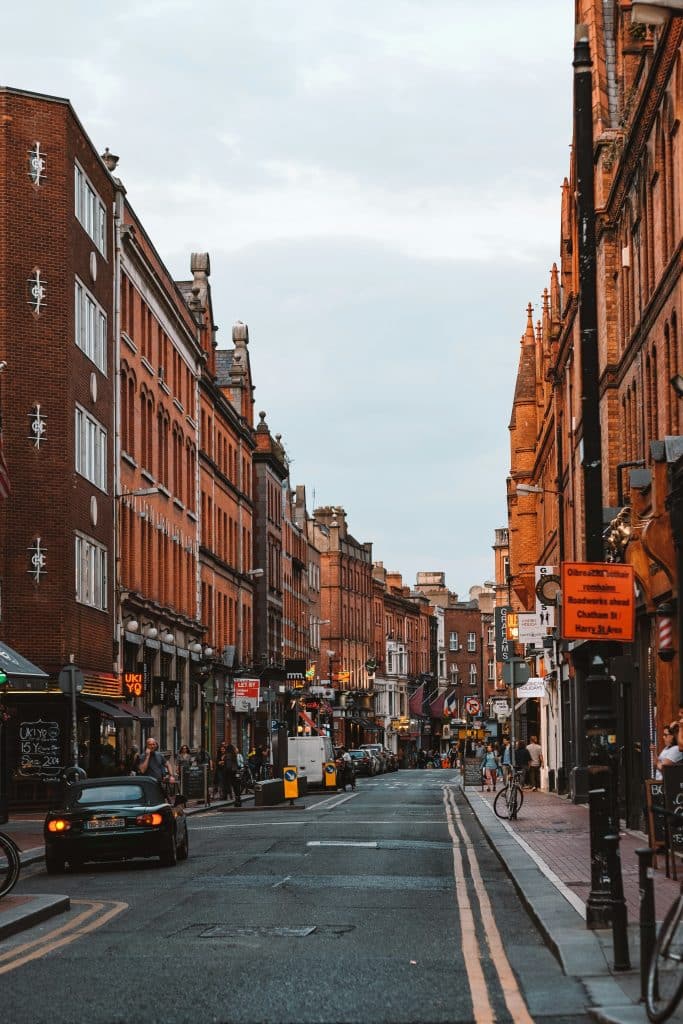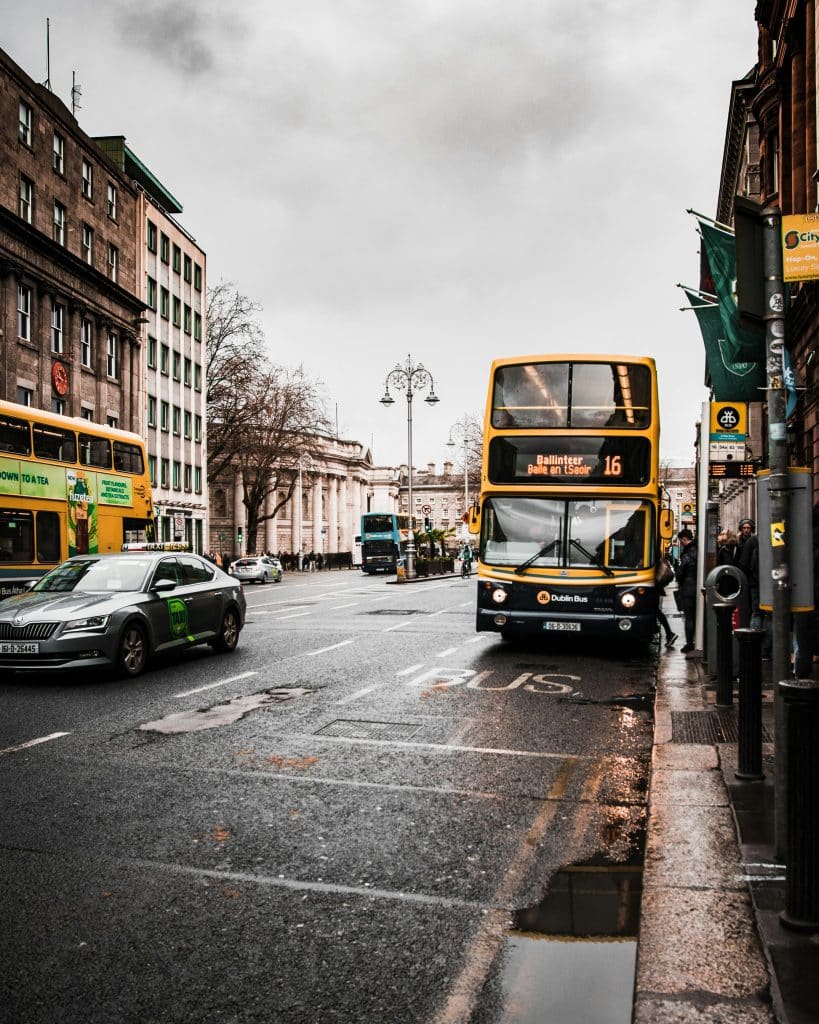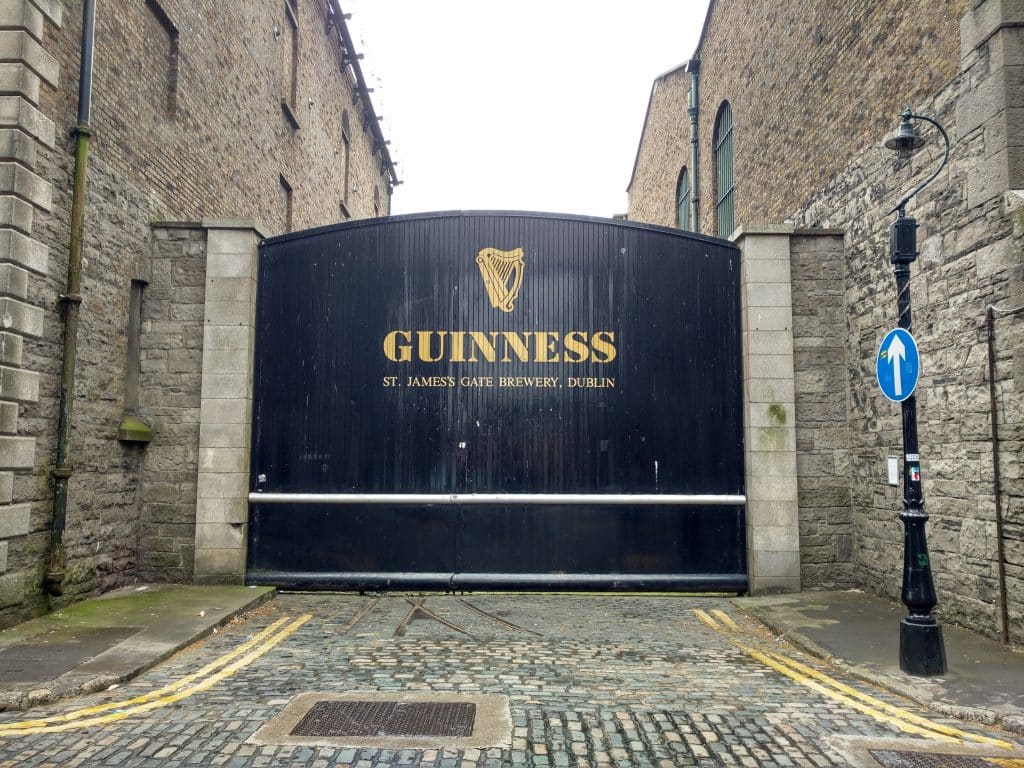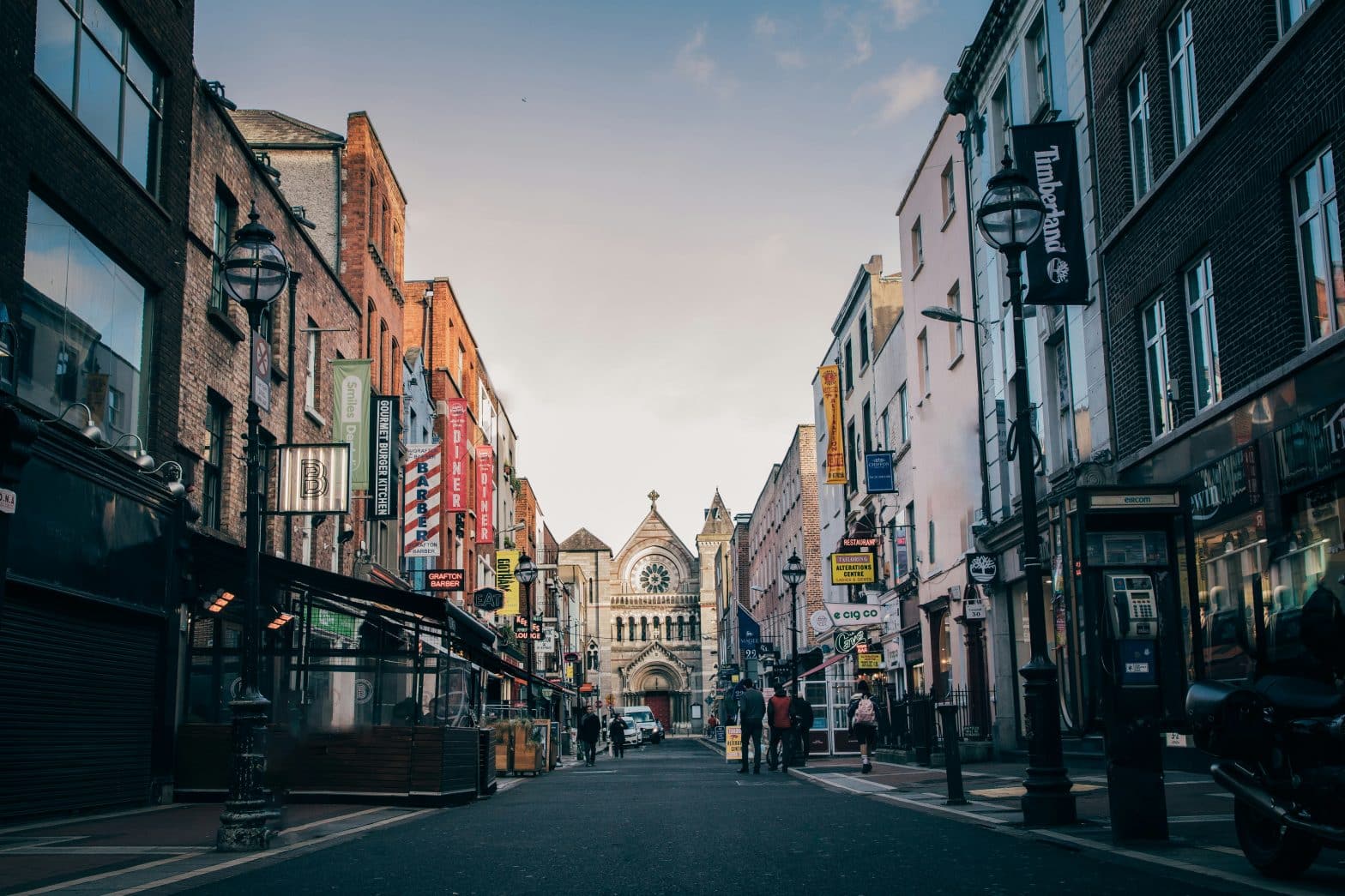Ireland’s capital attracts, entices and appeals with its many assets. High purchasing power, professional opportunities, a high quality of life… moving to Dublin has become an obvious choice for many people.
However, this project has its share of challenges, particularly with a tight housing market. Whether you are leaving alone for professional reasons or are planning to relocate with your family, here is everything you need to know to make your expatriation to Dublin a success!
Living in Dublin: pros and cons
The pros
- Simplified administrative procedures for European citizens
- Dynamic job market with a high employment rate
- Rich Irish culture steeped in tradition
- Cosmopolitan and welcoming population
- Capital of a country with exceptional natural landscapes
- Ideal base for discovering other cities (Cork, Galway, etc.)
The Cons
- Housing supply struggling to keep up with demand
- Eligibility for medical cover under the Irish health system only after one year of expatriation
- Weather often unstable (yes, unfortunately, it’s not a myth!)
Accommodation in Dublin
Let’s not beat about the bush: finding accommodation is certainly the biggest challenge of an expatriation project in Dublin.
The capital is facing a housing shortage due to an imbalance between supply and demand for property. This situation has caused rents to skyrocket, reaching an average of €2,100 per month.
However, the search can be made easier by following a few tips:

Have a solid dossier and a deposit ready
Viewings are often done in groups of 20 or more and the formalities are quite simple. Generally, landlords only ask for rent to be paid in advance.
So getting a lease is often a matter of speed. Prepare a strong application and emphasise your ability to pay the deposit immediately.
Searching on local websites
Several local platforms are popular for finding accommodation, including:
- Daft.ie
- MyHome.ie
- Rent.ie
- FindAHome.ie
You can also explore expat groups on social networks or use an estate agent as you would in your home country.
Don’t be too picky about the furniture
Most accommodation in Dublin is furnished, but the furniture is not always modern and to the taste of expatriates. If you are pressed for time, it is better not to dwell too much on this factor.

Everyday life in Dublin
As an expat, it is easy for a foreigner to integrate into Dublin society. The Irish, renowned for their friendliness, are always ready to help you discover their culture: from Saint Patrick’s Day to the importance of sharing a good beer!
Getting around in Dublin

In Dublin, people mainly travel by bus, DART, LUAS (local tram) and car.
When you arrive in Dublin, we recommend that you get the essential Leap Card, the Dublin transport card. You can top it up and use it to pay for your journeys, sometimes taking advantage of the discounts on offer.
Drivers will need some time to adapt, particularly because of the many one-way streets!
Going out in Dublin
Dublin has a strong pub culture where people like to meet up after work to drink a Guinness. At the weekend, people often leave the capital to enjoy the magnificent Irish landscapes.

The daily life of Dubliners is punctuated by leisure activities, including a few must-dos:
- Going to a traditional pub (The Temple Bar, Toners, Old Royal Oak, etc.)
- Visiting the Guinness Storehouse at least once in your life
- Visiting Howth, the fishing village on the outskirts of Dublin
Cost of living in Dublin
Life is expensive there…
Yes, living in Dublin is quite expensive, particularly because of the rents. On average, an expatriate living alone must budget over €2,600 per month, and a family of four must budget over €6,500.
Rent accounts for 38% of the monthly budget. A studio in the city centre costs an average of €1,600 per month, and at least €1,350 outside the city centre. Shopping is the second biggest expense, accounting for an average of 20% of the monthly budget.
For more information, see our comprehensive guide to the cost of living in Ireland.
…but salaries are high
However, it should be emphasised that, compared to the cost of living, the average salary in Dublin is particularly attractive, at €3,285 per month.
Some sectors offer higher salaries. For example, an expat working in finance or new technologies generally receives a higher salary than in the tourism sector.
In addition to attractive salaries, expats can also benefit from another advantage specific to Dublin: interesting tax opportunities, particularly for entrepreneurs.

Ireland has a corporate tax rate of 12.5%, one of the lowest in Europe.
The cost of living in Dublin compared to London
Life in Dublin is 5% more expensive than in London, including rent. However, if we exclude rent, the cost of living in London is slightly higher. For other items of expenditure, the comparison is more nuanced. For example, the price of groceries is generally higher in London:
| Food (1 kg) | Price in Dublin (in euros) | Price in London (in euros |
|---|---|---|
| Rice | 1,58 | 2,10 |
| Chicken | 10,11 | 8.50 |
| Potatoes | 1,85 | 1.50 |
Moving to Dublin with your family
An ideal living environment for children
While living in Ireland is often associated with students, Dublin also attracts many expatriate families. Its beautiful environment and numerous green spaces are ideal for children. The capital is full of family activities:
- Observe the animals in Phoenix Park, one of the largest urban parks in Europe
- Visit Dublinia, an immersive museum about the Viking era
- Take a trip to Cork
- And many more!

Quality education in Dublin
The Irish education system is one of the best in the world. According to the latest PISA ranking, Irish students are ranked 8th out of 81 countries. Certain subjects are emphasised in Ireland, particularly English and mathematics.
Working in Dublin
Working conditions for expats
UK citizens can live and work in Ireland without restriction, thanks to the Common Travel Area (CTA) agreement between Ireland and the UK. This agreement allows UK citizens to enter Ireland without a visa, reside, work without an employment permit, access public healthcare, and vote in general elections. If you are a EU citizen, no work permit is necessary. However, you must have a PPS Number, the equivalent of the social security number in France, which is used – among other things – to identify you for the tax system in Ireland.
If you live in Ireland, you can apply for a PPS Number online at https://services.mywelfare.ie/ .
If you wish to apply before travelling to the country, you must fill in a dedicated form. All the information can be found on the website of the Irish government.
The job market in Dublin
Dublin is full of professional opportunities for all profiles. However, some sectors recruit more, in particular:
- High technology (Google, Meta and Microsoft have set up their European headquarters there)
- IT and telecommunications
- Tourism
- Finance
- Catering
- The chemical and pharmaceutical industry
Companies particularly value expatriates, especially those with bilingual profiles; a good command of English is often a must!

Getting healthcare in Dublin: medical cover, insurance, etc.
Although the Irish healthcare system (HSE, Health Service Executive) is of high quality and is based on well-developed infrastructures, it has one drawback for expats: medical cover is only available after one year of residence.
Before this period, new arrivals have to pay their own healthcare costs, which means that more than a third of expats take out private health insurance.
Among the options available, international health insurance is popular with expats, particularly for its advantages:
- Coverage in Ireland, in the country of origin and internationally
- Access to quality care
- Reduced waiting times
